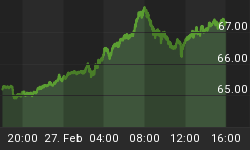Now might be a good time to take a break from eating dairy, seafood and fruits and vegetables entirely unless you own your own farm or are a deep-sea fisherman. It’s a big risk because the Food and Drug Administration (FDA) isn’t inspecting any domestic food-processing facilities, including those considered “high-risk”, the Washington Post reports.
With any luck, the FDA will find a way next week—amid the ongoing government shutdown—to resume inspections of high-risk facilities, but for now … eat at your own risk—especially if you’re a vegetarian.
According to the New York Times, every week, the FDA typically inspects 160 manufacturing and food processing plants—almost one-third of which are high-risk facilities in terms of causing food-borne diseases, which kill 3,000 people in the U.S. every year and hospitalized almost 130,000.
But the FDA is hamstrung now, thanks to the government shutdown. Only meat and poultry are being inspected by staff that isn’t being paid anymore. Meat, poultry and processed egg products are the purview of the U.S. Department of Agriculture and considered essential inspections, which have been maintained despite the shutdown.
In the meantime, FDA Commissioner Scott Gottlieb told reporters, “We are doing what we can to mitigate any risk to consumers through the shutdown”, while inspections of foreign producers where recalls or outbreaks of some kind have been an issue are still being inspected.
Congress is responsible for 40 percent of the FDA’s operations, according to the Post, while the remainder is covered by user fees. Related: France Pledges Moves To Prevent $1B Economic Catastrophe
As of Thursday, the government shutdown was in day 20 as the stalemate continues over Trump’s relentless demand for over $5 million in funding to build a border wall. So far, he’s managed to get only a pledge from Democrats for $1.3 billion in border security funding, but nothing for the infamous wall.
This is hardly the first government shutdown in the United States (the record was 21 says in 1995), but in this case, the effects are being felt more clearly. An estimated 800,000 federal employees could be deprived of their early 2019 paychecks.
National parks are filled with trash, with public bathrooms dangerously overflowing. Transportation Security Administration (TSA) workers are starting to call in sick because they’re not getting paid. Low-income housing is at risk, and subsidies aren’t being renewed because the Department of Housing and Urban Development (HUD) has had to furlough 95 percent of its employees. Food stamps might be the next thing to go. The food stamp program has $3 billion in emergency reserves, which isn’t enough for a full month.
And now everyone’s afraid to eat vegetables, while Fortune magazine opines that it’s actually cheaper to keep the government running, despite all the bills that aren’t being paid.
Lack of spending hampers the economy, and Standard and Poor’s estimated just over a year ago that a full government shutdown would cost the economy around $6.5 billion weekly.
By Fred Dunkley for Safehaven.com
More Top Reads From Safehaven.com
















